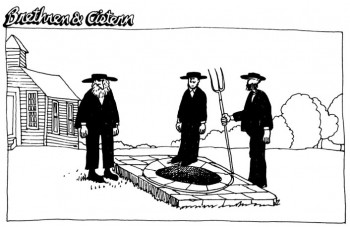How much record is there even of the name “Sherlock”, before Doyle’s stories?
How about “mais non” for “nicht doch” ?
Seems to have been well established though not all that common as an English surname by the 18th century. The 1729 Trial of the Witnesses of the Resurrection of Jesus by the Anglican bishop Thomas Sherlock seems to have been a well-known work (and surprisingly appears to be still in print. Huh).
It is also apparently attested as an English given name before Conan Doyle’s time, as in the case of one Sherlock Willis (d. 1783), rector of Wormley, wherever that is.
The problem with translating “nicht doch” is it has a fuzzy meaning that depends heavily on context and intonation. It is a bit of a trap: a mean examiner could reject any answer by nitpicking on some aspect, a lenient one could accept almost any answer.
“Mais non” sounds good to me, but I am no autority in French, it is by no means my strongest language to me to be frank. Perhaps French or Canadian Dopers could confirm, but I like it.
I love this one: ![]()
Tengo 32 años = I am 32 years old.
Tengo 32 anos = I have 32 anuses.
English speakers tend to associate diacritics with aids to pronunciation, but as someone once explained to me, in other languages they often represent entirely different letters, as in this Spanish example.
To be fair, Google Translate makes the reasonable assumption that “n” is actually “ñ” and translates “Tengo 32 anos” as the presumably intended “I am 32 years old”. But “ano” indeed technically means “anus” and “anos” is its plural, but it seems that realistically it would usually be read as “year” and “years” regardless of the misspelling, at least in polite society.
Heh. A book I read recently had one character make sarcastic reference to “the three-anused mud sloth”, as a way of clarifying that she didn’t care at all about ecological impact, only on impact to humans (of course, another, more scientifically-minded, character is quick to point out to her that impact on the three-anused mud sloth will quickly result in impact on humans).
If that book ever gets translated into Spanish, I wonder how the translators will make it clear that it really does mean “anuses”, and isn’t a typo for “years”.
That a circumflex over a vowel indicates a lost following /s/ in French is usually true (côte < Latin costa; prêt < Latin praesto; brûler < Old French brusler), but not always. Some of the more common exceptions to the rule include âge, chaîne, contrôle, and sûr.
In the song “Survival,” Bob Marley sang to “I-Idren, I-sistren” quite earnestly and unironically. (Idren is brethren with the first syllable replaced by I, which means God, basically.)*
*Dante also said in the Paradiso that in the language of Heaven, God’s name is “I” (pronounced ee like in Italian, not English).
Ça y est / There you go.
While ça y est (literally ‘there it is’) can be used to mean ‘there you go’ or ‘that’s right’, it’s a near homonym for the Urdu phrase sahih hai meaning ‘that’s right’. In colloquial pronunciation the voiced /h/ sounds are elided, making it sound French.
Men
Women
I like the fact that epididymitis (painful inflammation of a structure on testicles) is, in Dutch called ‘pijn in de balzak’
Perhaps that is related to the moomps. Or the klapp? (Warning: Terms made up and do not represent actual Dutch.)
Or the words have fallen out of fashion. I got to wondering about whether the French “crême” implied a “cresm” a while back, and learned that there is such a thing as chrism, it just has very specific contexts and I’d never encountered it before because of my heathen ways.
Yeah. To the point it’s almost safe to take as axiomatic that the “neater” a language fact, particularly an etymological one, is, the more likely it is to be an urban legend.
Tell me that, say, “orange” comes from Arabic naranj through absorption of the initial ‘n’ into the article (“an aranj” vs “a naranj”) with influence from the Romance languages “or” due to its golden color? Sure, I’ll buy that, but it’s probably just neat to other language nerds.
Tell me that “geek” means a carnival performer who bites the heads off chickens? Nah, I don’t think so. That seems to be pretty suspect.
Ano has several synonyms of varying degree of politeness or childishness, as probably every other language has too: culo, posaderas, trasero, pandero, nalgas, pompis… I guess culo would be the one chosen for this translation. Or they could come up with trianal (tripple anused), as opposite to trianual (three years). Sounds a bit artificial, though.
Are those really synonyms for “ano” - my understanding is that they mean backside , rear end , butt , etc. and therefore using one of them would be confusing and/or change the meaning.
Old English had an equivalent of German “doch” (which is only attested since the 1700s) and French “si”:
“Examination of the extant texts shows that the two forms of the Old English word for ‘yes’, i.e. gea and gyse, are distinguished functionally, in that the former is used to reply to positive utterances and the latter to negative utterances.”
Yes, you are right, only culo could mean both ass and anus. I was unprecise.
No shit? ![]()
Nicely done. Maybe not on purpose?
(Cut and pasted into my previous post)
